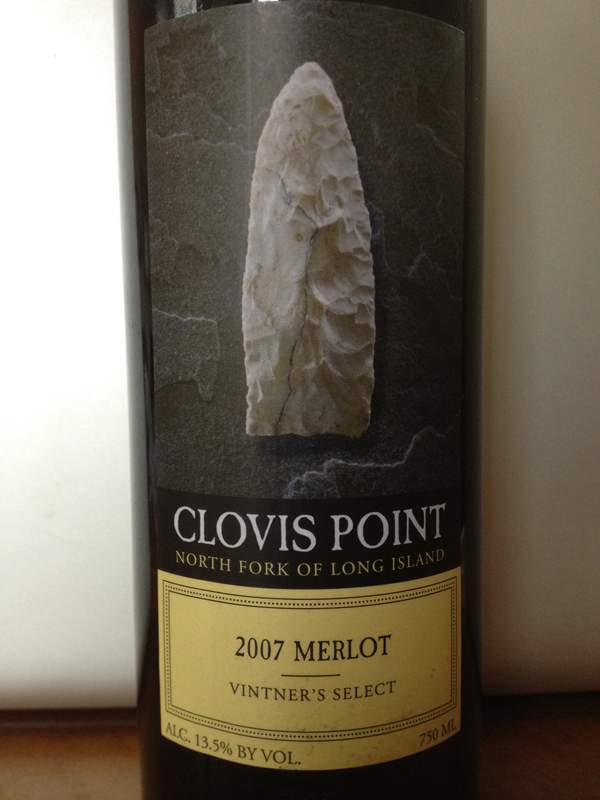Will Governor Paterson’s Budget Mean the End of the New York Wine & Grape Foundation?
By Lenn Thompson, Founder and Editor
It's not news to anyone in New York that the state government is running under a serious deficit. It's all over the news and even before it was being talked about so much, many knew and feared that this day would come. Now, Governor Paterson is trying to rectify the situation with his proposed 2009 budget. Economic times are tough, seemingly, every where, with everybody.
This isn't a political or economic blog, so I'm not going to write today about the entire budget and the decisions Governor Paterson has made. But there are a couple related to the New York wine industry that I do feel at least somewhat qualified to discuss.
Briefly, Paterson is proposing an increase in the per gallon excise tax from nearly 19 cents to 51 cents, a pretty hefty hike. The governor's 2009-10 budget plan also calls for elimination of New York Wine and Grape Foundation (NYWGF) funding. The NYWGF gets $1 million from the
executive budget and $1.8 million from the Legislature. It matches the
executive grant with private fund raising, for a total budget of $3.8.
So what would those changes mean if they are implemented? (Remember that this is a proposed budget and that nothing is finalized.)
This topic is like the cliched onion, there are many layers and depending on how many layers you peel, you may or may not cry.
I emailed with Jim Trezise, the president of the NYWGF, last week to learn more about what he thinks the impact might be. Apparently, they'll be able to support and fund any ongoing projects through the end of their current fiscal year, March 31, but that beyond that date, they'll have to cut "everything" including roughly $1 million of research by Cornell and the Cooperative Extension each year, the wine trail and regional branding programs, the New York City initiatives, the public television series, and "everything else."
Saying it even more bluntly, he told me "Our programs are based on the availability of matching funds from the State, plus in some years additional funding for more programs, so the end of state funding would mean the end of the programs."
Again, I'm no economist, but it's hard to understand how these cuts make any sense for the state. An independently run study in 2005 showed that the New York wine industry generated $3.4 billion for the state's economy. Given that, and the proposed increase in the excise tax, the less than $3 million the NYWGF usually gets doesn't seem like much. As they say, you need to spend money to make money, and that seems like a pretty good investment to me. It's an especially good investment when you consider that wine is one of the only agricultural industries in the state still growing. In that sense, it just seems silly.
But, as I talked with several winery owners and winemakers across the state over the last few days, I found it interesting just how mixed the reaction is to the possible elimination of the NYWGF.
Several winery owners in the Finger Lakes in particular seem worried that without the foundation driving promotions, they are going to lose customers, sell less wine and have tougher economic times. I'm not so sure that it's possible to prove (or disprove) that one has to do with the other.It's not a simple "if, then" scenario.
The owners I spoke to point to increased tasting room visitors over the past several years as an example of the NYWGF's importance in the region. Do we know for sure that the NYWGF is directly responsible for the increased food traffic? Is it possible that increased interest in wine across the country has an impact? I'm not downplaying or discounting the work the NYWGF does, but is there any hard evidence to support the contention that without the foundation, New York wineries are going to fail?
Charles Massoud, co-owner of Paumanok Vineyards here on the North Fork may have said it best last week "The coming year is going to be challenging no matter what business we
are talking about. And if the industry should experience any difficulty
will it blame it on such a possible fate for these organizations or
will we blame it on the economy?"
Echoing the comments of many, Ted Marks, owner of Atwater Estate on Seneca Lake called the foundation "the main promotional source for our industry" but I'm left wondering if this is the right model to begin with. Should individual wineries depends heavily on an organization like this to promote themselves? I don't think so, and I commend owners like Art Hunt of Hunt Country Vineyards who told me that they are "making plans to be out on the road significantly more than in past years, visiting accounts and working with our distributor reps. We are planning to do more to bring consumers back." Regardless of what happens with the NYWGF, other wineries will need to do the same.
Massoud thinks that "For many wineries that have distanced themselves as to their
sales and marketing, the effects may not be noticed. There are probably
some wineries that used such organizations as a crutch, and therefore
they may now have an opportunity to stand up and move forward. Perhaps we should go it alone for a while to discover what importance these organizations may really have."
Some have also suggested that this proposed budget cut would mean the end of some wineries. I have to ask again, is it because the NYWGF won't be around or is it just the economy and the tight credit situation? I'd argue that we're going to see some wineries go under regardless. Just like in every other industry, small business owners are struggling to stay afloat right now.
Surprisingly few that I spoke to mentioned what might be the biggest problem with the proposed budget cuts — the loss of research dollars. That, to me anyway, is the bigger long-term issue. Without the research being done at Cornell and the Cooperative Extension, the industry might stagnate a bit. Research is important, even if it doesn't directly lead to dollars. And let's not forget about all of the jobs that could be lost, at the research organizations and also at the state's individual wine trails, which get some of their funding from the NYWGF. There are people involved here as well, let's not forget that side of this.
From an outsider's perspective, I think this might be a wake-up call, both for the foundation and for its membder wineries. The NYWGF is far from perfect and there's been a dire lack of innovation in its programs — at least in the marketing and promotions arena.
I think that the NYWGF will find a way to survive this. Trezise is very good at lobbying the folks in Albany and I think he'll be able to secure at least some level of funding to keep the foundation alive. This is also an opportunity for the foundation to become much less reliant on state funding going forward. There apparently had been talk of a voluntary increase in the excise tax that would fund programs. It's hard to know if wineries will want to do that on top of the current proposed increase, but that would be one way to move towards becoming self-sufficient. Or, it's possible that Trezise will decide to focus on the International Riesling Foundation and let the NYWGF fade away. Only he can speak to his plans.
This is also an opportunity for the NYWGF (as well as member wineries) to re-think how they operate. To survive in this tight economy, you simply can't rely on the same old programs. Innovation and the leveraging of new technology is a must. This might force everyone in the industry to improve how they promote and market themselves. In that sense, a little short-term pain might lead to better days in the long run.
This is a complex situation and I'm sure some of what I've said here will elicit some strong emotions and feedback.















If NYWGF wants to make a case for continued funding, they need to make the case empirically. Yes, we know that more wineries have opened; yes, we know that more wine is made; yes, we know that more people visit the wineries.
The problem is that I don’t believe it’s a prima facie case that all of those things stem from NYWGF efforts.
I’m not saying NYWGF is not responsible. I’m saying it ought to be proven. Lay out the case with effective data. Don’t just say that wine is booming.
There are many — many — people in the wine industry who do not attribute the success of the industry to NYWGF efforts. They believe the industry is succeeding for a variety of reasons — better winemaking, better growing, attractive tasting rooms — that have little or nothing to do with NYWGF.
This is bound to be an interesting debate for NY lawmakers, and I’d venture a guess that in the end, NY wineries will benefit — even if funding is not restored. Art Hunt showed us why: They’re going to re-think certain approaches and they’re going to work to succeed independently.
Evan - I’m not an economist, or a lawyer, but it seems to me that the alternative reasons you list are also not prima facie cases for recent *economic* success in the NY wine industry.
I’d think that they it would be far more difficult to prove a relationship between things like attractive tasting rooms and the $3B that the industry brings into the NY economy than it would direct investment from the legislature.
“This is also an opportunity for the NYWGF (as well as member wineries) to re-think how they operate. To survive in this tight economy, you simply can’t rely on the same old programs. Innovation and the leveraging of new technology is a must. This might force everyone in the industry to improve how they promote and market themselves. In that sense, a little short-term pain might lead to better days in the long run.”
I’m with you, this doesn’t have to be as devastating as it may seem. For those wineries who are willing to become more proactive in courting customers in the ways that THE CUSTOMER PREFERS to be communicated with such as social media, this could work to their great advantage by creating long-term relationships and winery brands that aren’t so easily dismissed or forgotten.
1WineDude,
You’re absolutely right. My point is that many industry folks believe the success comes from developments outside the NYWGF. We don’t know for certain. But if Mr. Trezise and his staff wanted to make a convincing case, they could offer some kind of empirical data — the kind of data that is easier to quantify than new tasting rooms or “better” (there’s a nebulous term) wine.
And perhaps I’m wrong; perhaps NYWGF won’t have much more to say. But I doubt it. If they’re making the impact they say they’re making, they ought to be able to soundly explain and illustrate it.
(Again, I think they very possibly might be making such an impact! I just respond more easily to well constructed arguments and data).
I think we could all argue in circles about what helps the wine industry succeed versus the relative value of the foundation.
Yet, it’s not the foundation’s own actions that have brought us to this point. We are here because of fiscal irresponsbility across the board. Public budgeting does not work like corporate budgeting or even the private budgeting we do in our own lives. So, one can make the point that only a few modest millions invested in the wine industry can bring a “return” in the billions, but this is immaterial in the grand scheme of things.
Government, and New York State government in particular, makes budgeting decisions based not on effectiveness or outcome, but primarily on previous allocations. In a simplified example, if your government consists of 10 departments, your budgeting process for the next year involves the primary assumption that the former budgets for all 10 departments is baseline zero and that your new budget involves how much of an INCREASE each department gets. At that point, effectiveness might be considered, but this analysis is then completely clouded by lobbying, district and constituent loyalties, etc. The end result: while not all departments might end up with the same increase, they ALL go up.
In a worst case scenario, a previously existing program might be granted the same level of funding, but it’s not like it’s going to be cut completely. That means that if a program cost $10 million last year, it will cost $10 million this year and then will be added to the bases increases for all the better programs. The overall budget gets expotentially bigger!
Obviously, this cannot go on forever. Each constituency is going to claim that their department, agency, program, or special interest is valid and a good investment, and many of them might be right, but in the whole scheme everyone is wrong because there is simply no way to pay for it all.
Does government belong in the wine industry? To some degree, of course. Alcohol has to be regulated in a reasonable fashion and any agricultural interests should have some sort of advocate, especially in areas that have unreasonable market pressures to develop open land blindly (Long Island, for example).
But, should government be essentially marketing and advocating for products that may or may not be appealing to consumers? In my opinion, no, as I always believe that private interests tend to have the flexibility and incentives to do the job right. Wherever money is to be made and willing consumers are to be found, business people will fill the void.
It’s funny that in what little outsourcing government does is often to private firms in cutting edge fields. Commercial marketing is basically an American invention, and yet we need the state to step in to make sure it gets done right?
Anyway, some food for thought…
Jason,
Excellent points. Adding to your thoughts about the government getting involved in private enterprise… Corn-based ethanol is a fine example of what the government can do wrong with ostensibly good intentions. Instead of funding research for alternative fuels in an equitable fashion, government picked a winner and propped up corn ethanol. But simply forcing corn ethanol into the marketplace did not result in success; in fact, it’s had other unintended consequences that have rendered the whole things a failure.
Anyway, the point is that you’re right: even if some entities can reasonably say they pay back the government’s investment, the practice has gotten so out-of-hand that it might need a complete overhaul.
One benefit of the foundation’s work that has not been cited here: media outreach. As someone who has written several articles about New York wine over the years, including The San Francisco Chronicle Wine section’s first major coverage of NY wines after the 2005 Supreme Court ruling, I can attest that the NYGWF is extremely active and helpful in getting information for journalists and for boosting the state’s visibility in the media.
Now, I can’t produce any “empirical evidence” that my articles have led directly to increased foot traffic in winery tasting rooms or boosted any winery’s bottom line. But if you ask winemakers about the value of a positive writeup, the only ones who will downplay it are the ones who don’t get any.
Dave,
Actually, your story might seem anecdotal on its own, but I’d appreciate seeing the numbers on how often FL wines are reviewed, featured, etc. And given your perspective, it’s a good bet that NYWGF has a lot to do with any increase. I’m not demanding anything over-the-top when it comes to “evidence” of the impact of NYWGF; I’m just looking for something more than “wine production is up; more wineries are open.”
Your last comment was dead on. I don’t know any winemakers who aren’t looking for positive press.
well i honestly dont see what they have been doing with $3 million a year. Their web page is certainly not costing them that.
and be careful how much stock you put into Cornell. they are just researchers, and they use our vineyards and orchards as case studies, that’s it (aka their work never directly benefits those places they do research, its basically like if you had cancer putting yourself into a medical research program; it may cure cancer, but not yours). Ive seen their “experimental orchard” they have in Highland, they have a bunch of pine trees planted there?!?!? meanwhile i can think of 7-10 perfect properties just down the road they should be using. And their encourage people to plant their new high density orchards (for their own research purposes) as if apples haven’t failed the Hudson Valley area already. AND they patent their new varieties! isn’t that a total contradiction of what ag extension are suppose to do? their suppose to create models that farmers can copy easily and for free.
With school budgets and medicaid being slashed, it is hard to imagine that the NY&GF will escape serious cuts in its funding.
The NYW&GF has its share of supporters and detractors and while much of the criticism in this thread may be valid, let us remember that it has almost an impossible mission: how do you promote concord juice and high quality vitis vinifera wine under the same roof?
It has implemented a number of programs that were useful and of late its PR efforts have improved. Yet it may still be in the “nice to have” rather than “of strategic importance” category.
With the state wanting to triple the excise tax, where the real money is, I wonder if, to placate the industry, it will restore funding to the NYW&GF provided we do not fight the excie tax. We will see.
Should there be serious cuts the question then is what do we do. Most businesses in order to prosper have to keep re inventing themselves. The same is (or should be ) true of governement and agencies like the NYW&GF. The time is ripe for re structuring and reforming an agency that has not yet fulfilled its desired potential.
What is needed is a program similar to what other wine regions have implemented, such as the wines of Spain, Germany or the West coast.
NY has not yet shown that it has understood that need.
A rejuvenated NYW&GF or a successor should be very narrowly focused on this goal. The state should learn from these other governments that spending the needed funds is actualy a good investments as it translates into increased sales, therefore increased taxes, increased employment, therefore increased taxes again and increased production therefoe increased taxes again. Unfortunately NY has not shown that it has understood that math and continues to shortchange itself.
But perhaps this time we may still surprise ourselves, if in fact the excise tax goes through and parts of it are plowed back for this purpose. Again we will see.